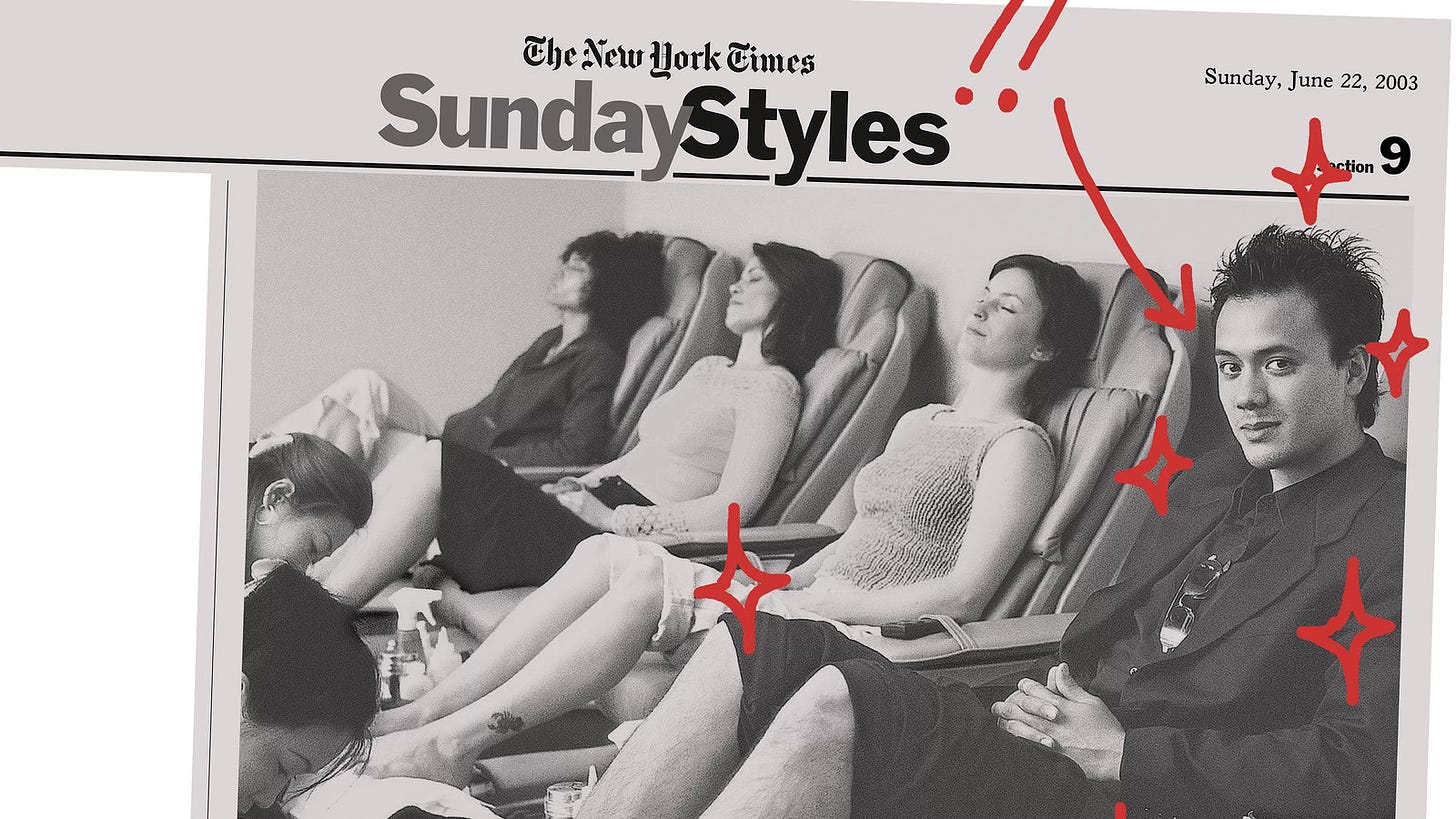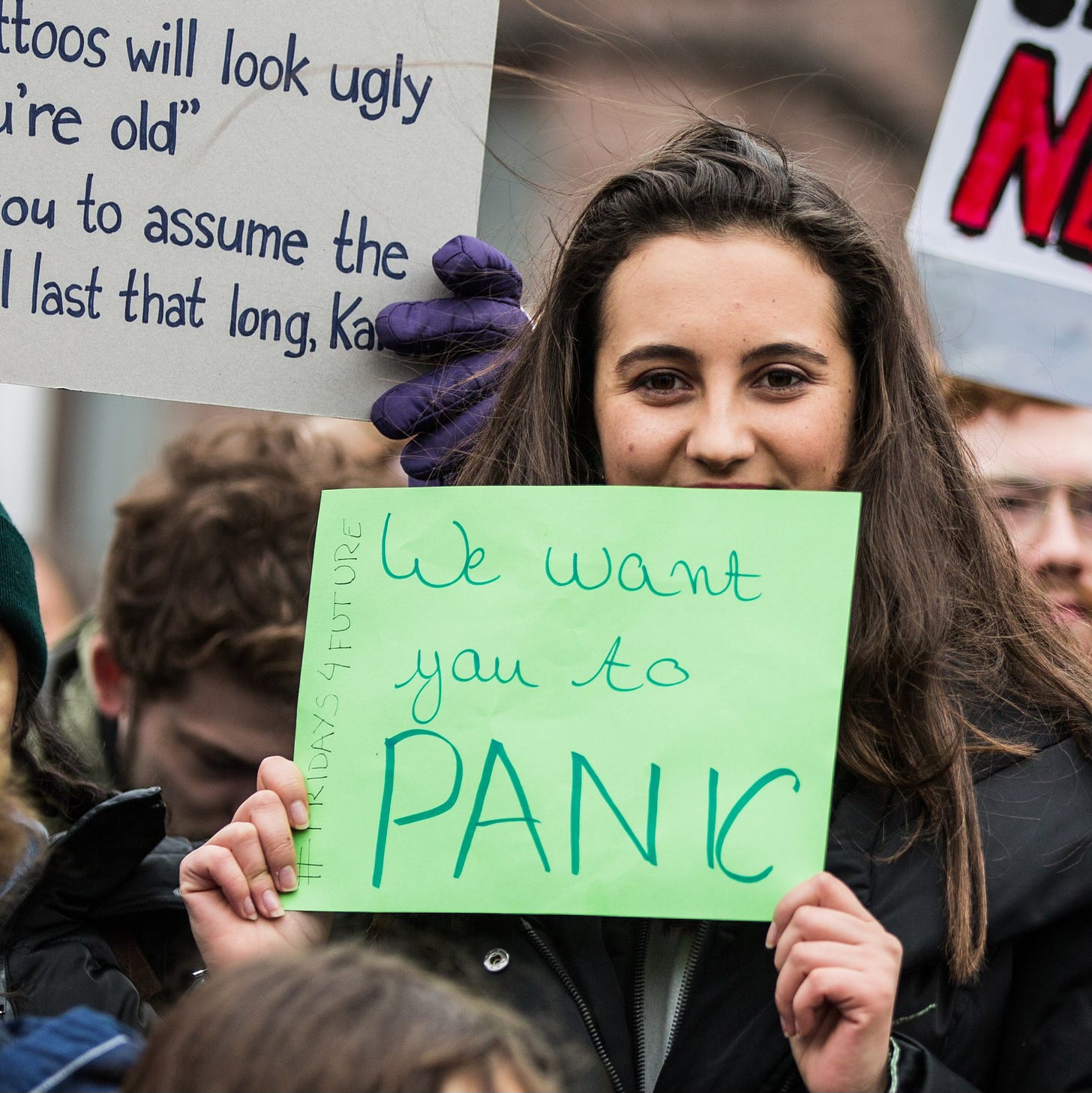Dear Friends,
I’m sharing a reflection on millenialinarianism (?). At the partner site
, writes on Passover.Best,
Sam
WHAT WAS A MILLENNIAL?
Zadie Smith has a nice line in which she says that each generation seems to have about three great and ten terrible ideas. Millennials, amidst the whole welter of bad ideas (tamagotchis, MGMT, the coddled workplace, etc) came up with one interesting idea that the jury is still out on, which is that it’s possible to be a fulfilled person without undergoing the usual initiations to be a ‘man’ or a ‘woman.’
I’m showing some millennial privilege or whatever in thinking that we were the ones to come up with that idea. It’s certainly there in the rebelliousness and androgyny of Flower Power, etc. And there are hints of it going all the way back to late 19th century Decadents. But millennials seemed to make that idea mainstream and to codify it in that briefly ascendant cultural entity, the Metrosexual.
The basic idea — and this was there, although hardly ever fully articulated — was that all of the old processes of initiation were a bit silly or outdated, they related to violent patriarchy or, at the least, to societies of scarcity. Since things were, especially in the 1990s and 2000s, really good, and had been for a very long time, it stood to reason that there need be no deference to the logic of scarcity. Boys did not need to prove themselves to be ‘men,’ whether through military service or same sort of Book of Genesis-ish test against other men. Women did not need to be mothers to find fulfillment and could dispense with much of the coquetry of dating. The heroes were people like Michael Cera, Greta Gerwig, Ellen Page, Jason Segel, etc — people who seemed to have no very clear place on the gender spectrum, who didn’t necessarily pass through the usual accepted steps of adulthood but had a distinct self-possession to them, an ability to self-inhabit wherever they found themselves in the world.
The problems started to emerge with time. The whole generation was a bit tough to deal with in the workforce — more interested in self-care and motivation than in proving themselves to superiors. And rates of child-bearing were very low — the search for fulfillment was endless, running through creativity, spirituality, relationships, but not, particularly, family.
For millennials (at least the circles I was in) androgyny wasn’t particularly a choice. The sense was more that it just didn’t really matter — without childbearing, without initiatory masculine tests, men and women had more or less the same lives, subject to the same career pressures, etc. For Generation Z, that idea seemed to be pushed much further — trans became a generational totem in somewhat the way gayness had been for an earlier generation. The generational heroes very much seemed to be defying their ‘assigned’ genders, treating everything as a choice. Whatever the future was, it would be far less gender-demarcated than the past.
All of this was much to the consternation of older people, who noted the falling birth rate, who noted the preponderance of grown-up children, who bemoaned a lack of polarity in romantic dynamics, who felt that the endless ‘self-expression’ masked a running-away, an evasion of basic adult responsibilities.
To some extent, this was just the usual inter-generational misunderstanding — most millennials and Gen Zers probably would go on to have perfectly conventional lives, slot themselves in to existing power structures, etc. But there was a real idea at the heart of it: whether anything really was lost by just skipping the initiation rituals, whether society didn’t end up being kinder and gentler for doing without them.
As far as I can tell, all of this is still very much undecided. I’ve been going through a round of regrets for my millennial upbringing, and share in the general bewilderment at Gen Z’s apparent lack of contact to reality. But I look at other cultures around the world and understand why we went in the direction we did. The masculine rituals do have a way of enforcing conformity, of eliminating individual identity. Feminine ‘maturity’ tends to emphasize romance and motherhood to the exclusion of all else. The traditional systems can be brutal to anyone who is different.
I understand the critiques. I understand why millennials seem soft and Gen Zers fantasists. I’m aware of the feeling of having been misled — that biological realities and some ironclad truths about sexual dynamics made a mockery of millennials and Gen Z’s more utopian ideas of how to change the world. But who we were at the moment of history we were in, when everything did seem really, really good, there was no alternative except to try.






I agree with the lack of initiation into adulthood, but it strikes me that many aspects of 90s/early 2000s pop culture presented a pretty gendered view of perpetual adolescence: girl and boy bands, the hypersexualisation of female pop stars such as Britney Spears and Christina Aguilera, the manic pixie dream girl, Jackass, American Pie, American Beauty, American Psycho, Fight Club… Even today, where heterosexual romance plays much less of a role in popular culture, it seems odd to describe the prevailing ethos as ‘androgynous’ when young men and women seem to be inhabiting increasingly separate virtual worlds (men on YouTube, women on TikTok etc), which is reflected in their diverging political views, notwithstanding the proportion of Gen-Z who would like to opt out of gender altogether.
I think you're onto something specifically in regards to the Ellen Pages and Michael Ceras of that era, which did provide a welcome alternative to the "jocks" and "babes" which, even if they were made fun of, were still prevalent in films of the late 90s like American Pie & She's All That, etc.
While there was a recognition of the emergence of "being alternative is cool" (thanks, Freaks & Geeks, Garden State, Super Bad, etc.) it didn't necessarily overtake the typical roles associated with the "hot person" gender norms that Mary Jane Eyre's comment below succinctly describes. If there was liberation with a more androgynous type of personality, it was more in the opening of that category as a possibility than anything else, but still a category that carried with it assumptions and expectations that made it hard to be a plurality of things (to this day, I am thankful that my hippy dippy school made it possible to be in the school band, the varsity basketball team, and philosophy class)